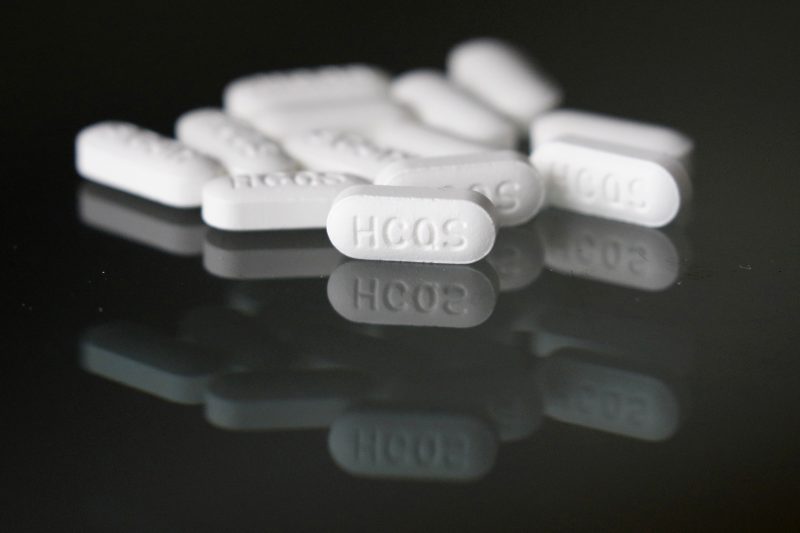It was perhaps not wise for Didier Raoult, a French microbiologist, to become the authoritative face of using chloroquine or its variant hydroxychloroquine to treat covid-19.
Four years ago, only weeks into the pandemic’s emergence in the United States, President Donald Trump was actively hyping claims that the drug would prove to be an effective treatment for the disease caused by the coronavirus. But Raoult’s research soon raised red flags — and not just his research on covid-19. Multiple papers written by Raoult have been retracted since his public profile drew new attention to his work; the site Retraction Watch tallied “over 100 expressions of concern for papers published by a group of researchers led by … Raoult,” which sit alongside 10 retracted papers.
The retractions of Raoult’s research on covid and other topics make him an exception among those who touted hydroxychloroquine as a possible covid treatment. Trump and those who helped boost the idea that the drug might or would be a game changer have almost universally moved on without people remembering their advocacy four years ago.
Trump’s focus on the drug lasted about 40 days, from shortly after elements of the tech community — including (in hindsight predictably) Elon Musk — began touting a paper based on Raoult’s work. That paper, written by James Todaro, a doctor, and Gregory Rigano, an attorney, flatly referred to chloroquine as “an effective treatment” for covid-19. The New York Times would later report that Raoult signed off on Todaro and Rigano getting ahead of his report on the findings.
Rigano began making the rounds with Trump-friendly media personalities. His first stop was on Laura Ingraham’s Fox News show. Ingraham would later visit the White House with two doctors who were regulars on her show to make the case for the drug. Rigano also joined Sean Hannity who, at one point, told viewers that he would “be all over” the drug if he had the coronavirus. Mehmet Oz, who two years later would be a Trump-endorsed candidate for the Senate, also promoted the drug on Fox News.
Trump began repeatedly discussing the possibilities that the drugs purportedly offered. By late March and early April 2020 his focus was centrally on unwinding the economic damage the pandemic had already done to the country ahead of the looming November election. A drug that could magically cure covid was not only a medical miracle but a political one. It was a ray of hope that, even if it didn’t save lives, might convince people that lives were going to be saved, so they might as well get back to normal life.
At one point in early April, a reporter asked the country’s top infectious-disease expert, Anthony S. Fauci, what he thought of hydroxychloroquine. Rather than letting the expert respond, Trump jumped in and answered the question instead.
Because Trump promoted the drug, it — like not wearing a face mask — became an article of faith among his supporters and on the broader right. Research would later show that counties that supported Trump that November saw statistically higher levels of hydroxychloroquine prescriptions during the pandemic.
As other researchers began looking at the drug, though, they found either that it showed no proven benefits or even, when used as part of a cocktail of drugs, posed a risk to patients.
“I think if anybody recommended it other than me,” Trump said on April 13, 2020, “it would be used all over the place, to be honest with you. I think the fact that I recommended it, I probably set it back a lot. But it’s a lot of good things that are happening with it. A lot of good tests.” A few days before, news broke that a study in Brazil had been stopped early over concerns about side effects.
By the end of April, Veterans Affairs released research showing higher rates of death among those treated with hydroxychloroquine — research that Trump and Fox News hosts dismissed as isolated or incomplete. The federal government, though, formally recommended against its use. Further research reinforced that the drug was not effective as a covid-19 treatment.
“I think history will judge who’s right on this debate,” Trump adviser Peter Navarro said when Trump began touting the medication, “but I’d bet on President Trump’s intuition on this one.” Instead, history (and, more specifically, research) sided against the former president.
Raoult’s advocacy led to a reconsideration of his research broadly, to his professional detriment. Most of those who amplified his claims, though, faced no professional setbacks. Ingraham’s show changed time slots. Musk bought the social media platform on which he first hyped the idea. Trump is the presumptive Republican nominee for president.
Todaro, the opthalmalogist who co-wrote the paper that brought Raoult’s initial research to light, went on to elevate skepticism about the results of the 2020 presidential election, hype cryptocurrency and join the board of an organization centered on AI.





























